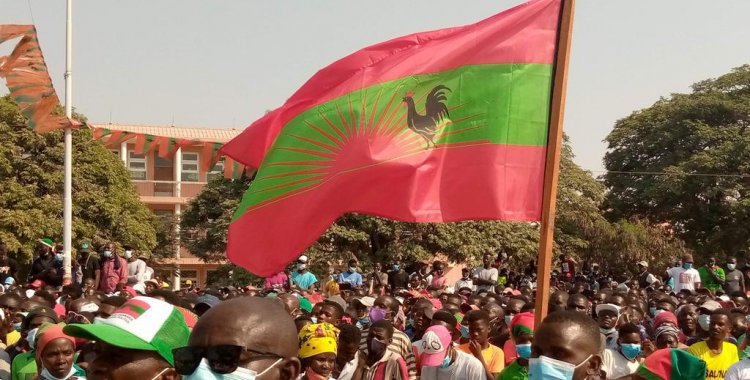The position is contained in the political statement of the parliamentary group of the National Union for the Total Independence of Angola (UNITA), read by its parliamentary leader, Adalberto Costa Júnior, in the plenary session of discussion and approval of the draft law on the General State Budget (OGE ) for the fiscal year 2022.
"We are, without a shadow of a doubt, facing an essentially electoral budget that closes the current political cycle with strong signs of corruption, taking into account the monstrous amount in a context in which public procurement takes place in a simplified manner, that is, there is a direct award to friends and partners to the detriment of the country", said Adalberto Costa Júnior.
According to the leader of UNITA's parliamentary group, in global terms the proposal for the 2022 State Budget foresees expenditures of 18.7 billion kwanzas, of which, according to Government estimates, 6.3 billion kwanzas will be used to pay expenses "and already was carried out in the past (return of loans or simply financial expenses)" and the remaining 11.3 billion kwanzas are the part corresponding to the expenses, which are consumed in 2022.
Adalberto Costa Júnior considered that "blaming" covid-19 and the oil crisis "is to persist in the usual mistake: not discussing the real causes of the economic and social crisis in Angola".
"Meanwhile, this patient called Angola is getting worse, because he has been receiving treatment based on a wrong diagnosis. It is important to share that covid-19 even allowed the Government to transfer a substantial part of the debt payment to 2023. I am essentially talking about debt service to China. Unfortunately, the government has seen this as a savings, when in fact it is already penalizing the next government cycle (which may not be its own)", he stressed.
According to Adalberto Costa Júnior, throughout the current mandate, the economy has reflected "an accumulation of poverty year after year and in a very accelerated manner".
"At the current rate of population growth of 3.2 percent a year, the only way to reverse this situation is for the economy to generate economic growth rates significantly above 3.2 percent and for a multitude of uninterrupted years," he said.
Costa Júnior pointed out as a solution "to promote political and economic reforms that provide the country with a high mark and that, in turn, determine the capacity of the economy to generate domestic and foreign savings, accumulate national and foreign capital, accumulate production technology, increase its productivity levels and there is a natural appreciation of wages as a consequence".
"Unfortunately, it is more than demonstrated that the ruling party is not capable of implementing such reforms due to the fact that they conflict with its hegemonic spirit of power. In fact, the greatest paradox faced by the ruling party results from the dilemma between economic freedom (end of political hegemony) and maintenance of power", he stressed.
"It so happens that this dilemma can only be overcome with political alternation, which, once a regular government is formed, consolidates political stability, which is fundamental for the economic process", he stressed.
In turn, the first vice-president of the parliamentary group of the Popular Movement for the Liberation of Angola (MPLA), Manuel da Cruz Neto, said that the executive intends to act with great vigor through the Integrated Program of Intervention in Municipalities (PIIM).
The objective, he explained, seeks to increase the autonomy of the country's 164 municipalities, within the scope of the administrative deconcentration and decentralization policy, dedicating around 827.4 million kwanzas to the PIIM, an increase of over 346.9 million kwanzas comparing with 2021.
André Mendes de Carvalho "Miau", from the Comprehensive Convergence for the Salvation of Angola – Electoral Coalition (CASA-CE), considered it imperative for the Government to declare a state of emergency for the southern region of the country, which has been affected by a severe drought for several years.
"What cannot happen again is the parade of deeply malnourished people, dying of hunger, as we have seen, year after year, without a solution", he stressed.
Benedito Daniel, from the Social Renewal Party, considered that the priority should not be just controlling the pandemic, and Lucas Ngonda, from the National Front for the Total Independence of Angola (FNLA) said that the weaknesses of the Angolan economy had already been identified in previous budgets "they are the same ones that get worse as time passes and Angolan society shows a certain despair".







